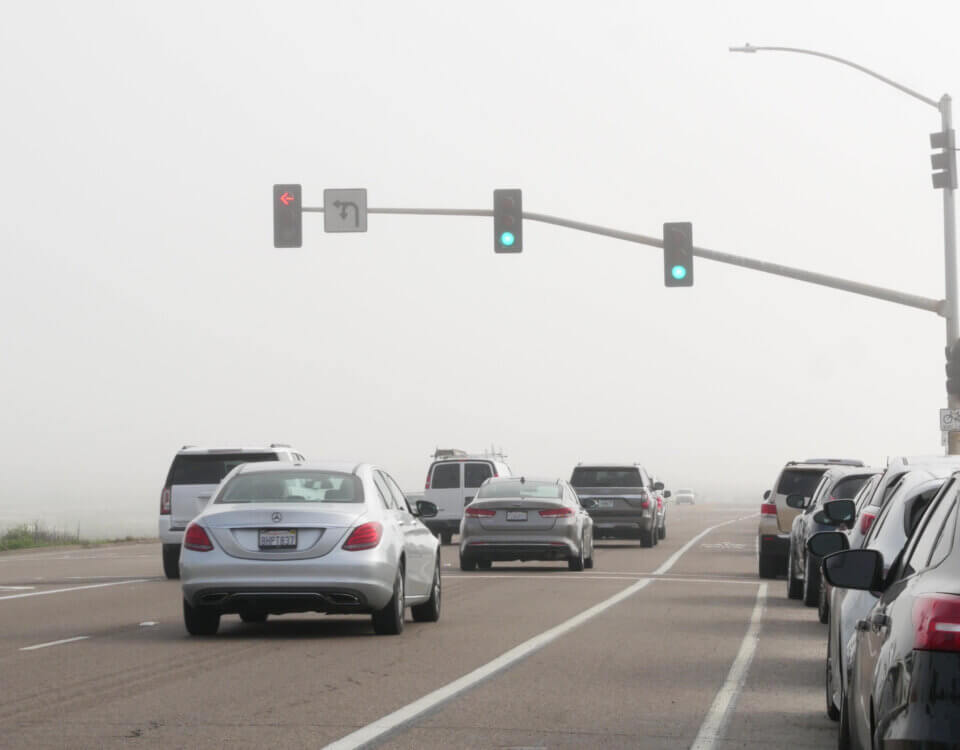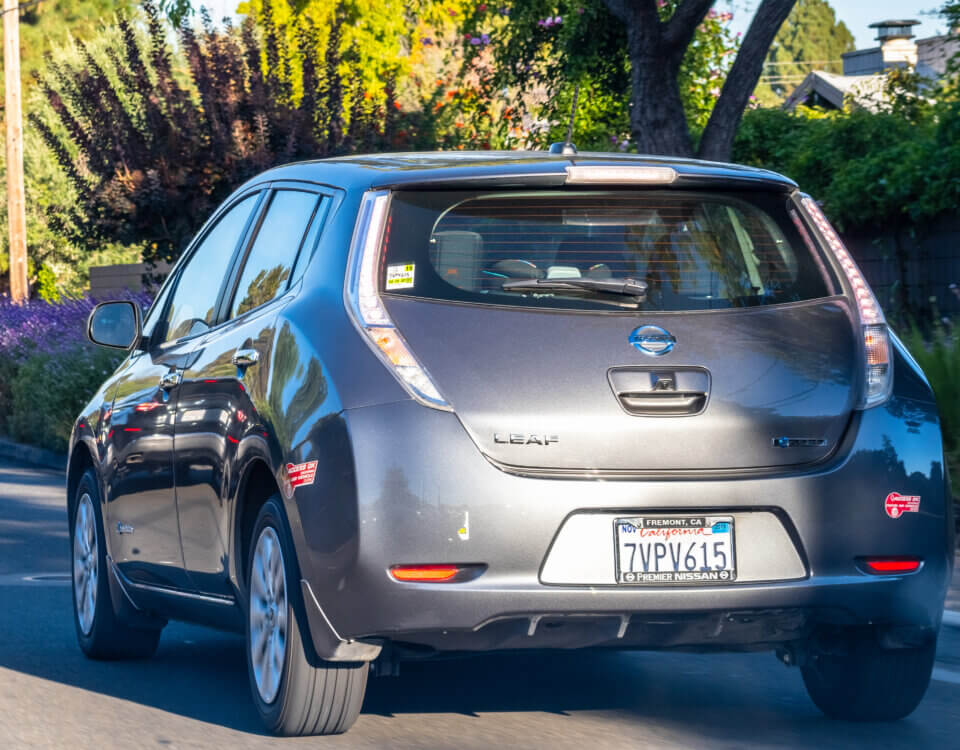Passing another vehicle on the right is something drivers do every day, but in California it is only legal in specific situations. Understanding when you can and cannot pass on the right helps keep you safe and protects you from being blamed in an accident.
When Passing on the Right Is Legal
California law allows drivers to pass on the right, but only when certain conditions are met. You may legally pass on the right when:
The Other Driver Is Turning Left
If the vehicle ahead of you is making or preparing for a left turn, you may safely pass on the right as long as the roadway allows it.
The Road Has Two or More Clearly Marked Lanes Moving in Your Direction
If you are on a street or highway that has two or more lanes traveling the same direction, you may pass on the right in your own lane when it is safe to do so.
You Are on a One Way Street
If all lanes travel in the same direction, passing on the right is allowed when roadway conditions support it.
You Are on a Divided Highway
On highways that separate opposite directions of traffic into different roadways, passing on the right is permitted when the right side is a designated traffic lane.
The Golden Rule: Stay on the Paved Roadway
Even when passing on the right is allowed, drivers cannot leave the paved road. It is illegal to:
- Drive onto the shoulder
- Use a bike lane to pass
- Go off road to get around another vehicle
All passes must be completed on the main, paved portion of the roadway designed for regular traffic.
When Passing on the Right Becomes Illegal
Passing on the right is unlawful if:
- The road is too narrow for two lanes of traffic moving in the same direction
- There are no lane markings allowing the maneuver
- You drive off the roadway or onto the shoulder
- The pass creates a risk to other vehicles, bicycles, or pedestrians
- You interfere with the path of the vehicle you are overtaking
If the pass is unsafe in any way, it may be considered negligent or reckless.
Why This Matters in Accident Cases
If a collision happens while someone is passing on the right, the legality of the maneuver becomes a key factor in determining fault.
If the Other Driver Passed Improperly
Their illegal or unsafe pass may establish they were negligent. This strengthens your claim for compensation.
If You Passed on the Right
Insurance companies may try to blame you if the pass did not meet the legal requirements or was unsafe under the circumstances.
Documenting lane markings, road width, traffic flow, and vehicle positions becomes crucial.
How Hillstone Law Helps
Determining whether a pass on the right was legal or unsafe requires evaluating:
- Road design
- Lane markings
- Driver behavior
- Traffic conditions
- Witness statements
- Police reports
Hillstone Law investigates every detail to protect your rights. Our team builds strong cases by proving when a pass was safe and legal, or by showing how the other driver’s improper pass caused the crash.
Final Takeaway
Yes, passing on the right is legal in California, but only under specific conditions and only when done safely on the paved roadway. If an improper pass caused your accident or if you are being blamed unfairly, Hillstone Law is ready to help you fight back and recover the compensation you deserve.
Note: These blog posts are created solely for the use of Hillstone Law. The information is gathered from internet research, publicly available sources, and artificial intelligence (AI) tools such as ChatGPT. While we aim to share helpful and educational content, Hillstone Law does not independently verify every detail. Some information may be incomplete, outdated, or subject to change without notice. If you believe any part of a post is inaccurate, misleading, or infringes upon copyright, please contact Hillstone Law immediately so we can review it and take appropriate action, including correction or removal.
Disclaimer: The material provided in these blogs is for general informational purposes only and should not be considered legal advice. Reading these posts does not create, and is not intended to create, an attorney-client relationship with Hillstone Law. Our intent is to share knowledge, raise awareness, and provide helpful resources to the public; however, Hillstone Law makes no warranties or guarantees about the accuracy, completeness, or reliability of the information provided, and expressly disclaims liability for any actions taken in reliance on it. The photos used in these posts are for illustrative purposes only and do not depict actual clients, individuals, or incidents unless expressly stated. If you or a loved one has been injured in an accident, please contact Hillstone Law at (855) 691-1691. Our attorneys are available to answer your legal questions and help you understand your rights.







